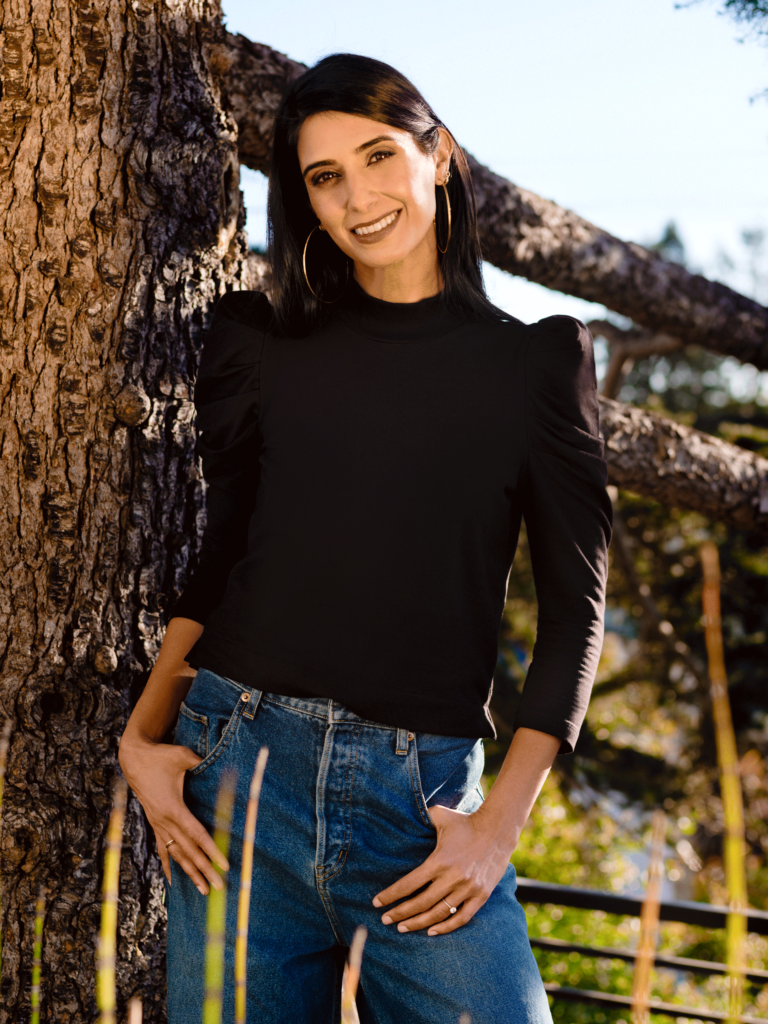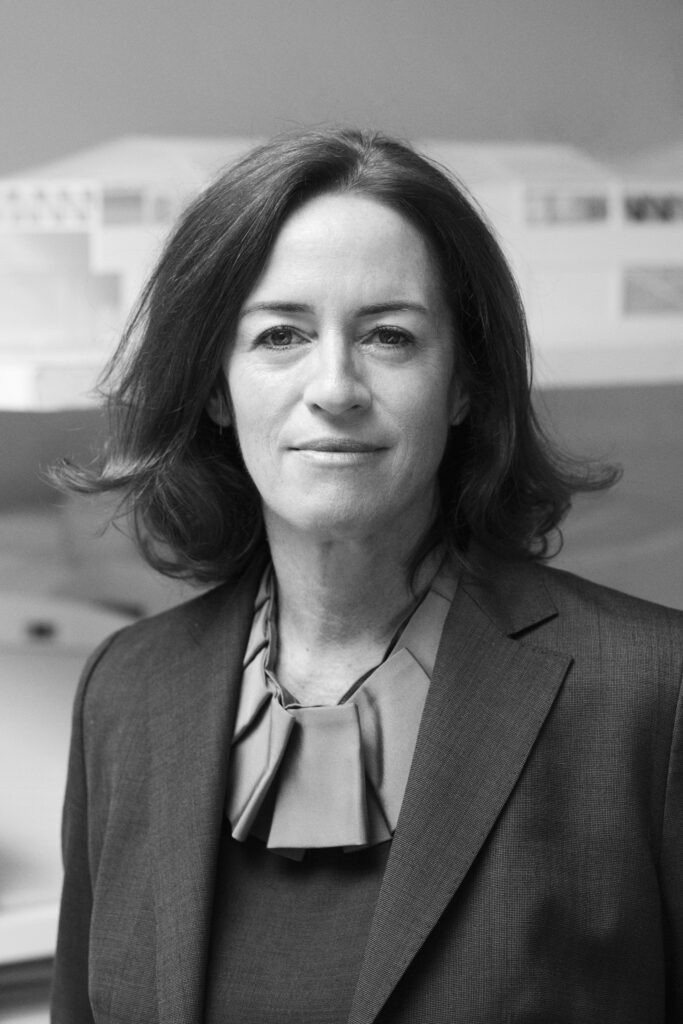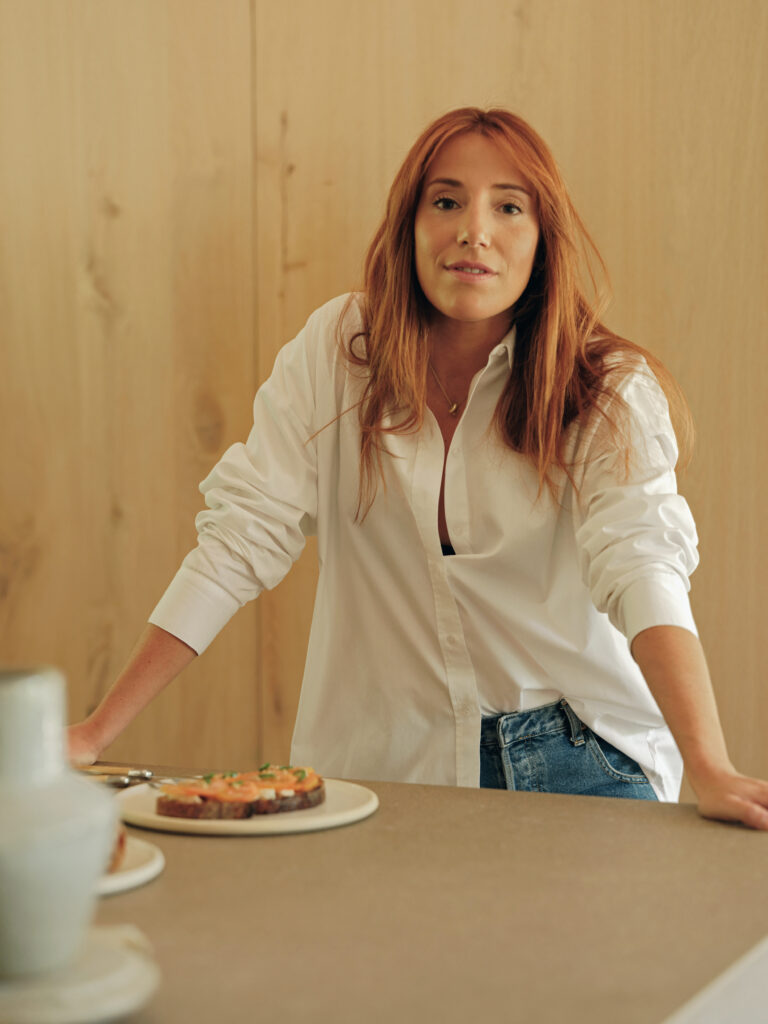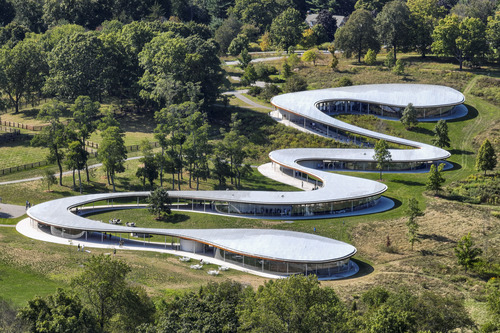On February 22, our Senior Program Officer Karen Kariuki, will host a discussion Threads of Change, with women trailblazers pushing the boundaries in the food, clothing, and shelter sectors. The panel will be held at California’s Laguna Art Museum
Our homes, the clothes we wear, the food we eat, are essential to our lives. These essentials are driving change to create a more ethical and sustainable future, from supporting regenerative farming practices to encouraging less consumption. These changemakers, who will be discussing what inspires them and how sustainability translates to in everyday language, include Shilpa Shah, Co-Founder and CXO of Cuyana, a fashion brand that supports craftsmen and artisans around the world; Sharon Johnston, FAIA, founding partner of Los Angeles-based firm Johnston Marklee, Professor in Practice at the Harvard Graduate School of Design, and Camilla Marcus, chef and founder of west~bourne, known for its socially-conscious and employee-first initiatives.
“These trailblazers in their respective industries will reflect on the moment where they couldn’t look away and knew they had to do something to make change,” Kariuki said. “They know better than anyone what strides industries of food, clothing and shelter have made in the past few decades to create a more sustainable future.”
Shilpa Shah, Co-Founder and CXO of Cuyana
Shah, and Karla Gallardo, promote “buy less, buy better,” a stark contrast to our consumption-geared economy. Besides encouraging consumption to keep up with the changing fashion cycles with the added lure of low prices, some fast-fashion retailers have been accused of using forced labor to make its clothes, violating the Uyghur Forced Labor Prevention Act (UFLPA) which prohibits the importation of goods into the U.S. manufactured wholly or in part with forced labor in the People’s Republic of China, especially from the Xinjiang Uyghur Autonomous Region, or Xinjiang.

Shilpa Shah, Co-Founder and CXO of Cuyana
Cuyana was founded to create “timeless” essentials that would last longer. The company partners with craftsmen and artisans around the world to ensure integrity and longevity, according to the company. For instance, its alpaca pieces are made in a female-owned factory, where craftsmen and craftswomen weave alpaca wool in a way to create lasting, sustainably-made garments.
“What you buy, you should use.” – Shilpa Shah
“What you buy, you should use,” said Shah in an interview with Vogue UK. “Our whole ethos was to create a brand that makes pieces that women love, and that you can [turn] to over and over again.” There are no “flashy logos” either, she added.
CXO of Cuyana joins a growing list of companies that are focusing on reusable, sustainable-made consumer products. Some of the certifications CXO of Cuyana uses include the Forest Stewardship Council (FSC), the Global Organic Textile Standard (GOTS), and the Global Recycle Standard (GRS). These certifications, for instance, ensure that the cotton was grown organically, made without harmful chemicals such as chlorine bleach, or that the fiber content was recycled with a clear chain of custody, following social and environmental compliance principles.
As consumers increasingly align their values with their purchases, the sustainable apparel market which emphasis the use of eco-friendly materials, including organic cotton, hemp, recycled polyester, is expected to grow from $10.22 billion in 2022 to $20.51 billion by 2030, according to research firm SNS Insider.
“The impacts of textile waste and cleaning processes on the environment are estimated at about 5% of landfill space and 20% of freshwater globally.”
Grace Farms over the years has invited leaders in the sustainable clothing and fashion market to discuss how forward-thinking organizations are shifting their practices to reduce the harm done to the environment and its workers. Vanessa Barboni Hallik, founder of Another Tomorrow, the first sustainable luxury fashion Certified B Corp, shared how she is reinventing fashion. “Our goal is to both serve our customer with an exquisite, functional, and sustainable wardrobe and to be a living case study for the industry that we can evolve fashion at large to align with human, animal and environmental welfare,” she said in a recent interview with Madame Architect.
Sharon Johnston, Partner at Johnston Marklee
Sharon Johnston, FAIA, is founding partner of Los Angeles-based firm Johnston Marklee and Professor in Practice at the Harvard Graduate School of Design. The design firm has won 40 major awards, and their projects span across 14 countries in North and South America, Europe, and Asia. Recent projects include, according to Johnston Marklee, include the critically-acclaimed Menil Drawing Institute in Houston, Texas, a renovation of the Museum of Contemporary Art Chicago, and the UCLA Graduate Art Studios.

Sharon Johnston, Partner at Johnston Marklee
Although their work has been difficult to “drop into some tidy architectural taxonomy,” according to the Los Angeles Times, their architectural designs make you think and then exclaim “Wow!”
Besides the “wow” factor, Johnston said in an interview with Madame Architect, that they realize the positive impact that architecture can have to “frame enduring and resilient places.” “We are working on projects at many different scales, from dwellings to larger master plans, but what unites them all is framing space for people – how two individuals or many can come together in ways that expand our sense of humanity and build diverse engagements with the sites in which we work,” she said.
“I adopted the belief that architecture, when activated, can play a significant role in a more just and equitable world.” – Sharon Prince
Similarly, the award-winning architecture of the River building frames or informs the humanitarian and cultural work at Grace Farms. Sharon Prince, CEO and Founder of Grace Farms Foundation, believes that space can be catalyst for good. “I adopted the belief that architecture, when activated, can play a significant role in a more just and equitable world … Preserving and converting Grace Farms as eighty acres into a publicly available space was the first move, and solidified the ability to create a space to experience the awe and wonder of nature, and then to invite people from all backgrounds and sectors,” she said in an interview with Madame Architect.
Since its founding in 2015, Grace Farms has generated significant new outcomes including its Design for Freedom movement, the global movement to eradicate forced labor in the materials supply chain. Hundreds of global leaders throughout the ecosystem of the built environment are currently engaged with Design for Freedom and we have launched new Pilot Projects across three continents. In March during our third annual Design for Freedom Summit, where more than 500 attended last year, including students from more than 20 leading universities, Grace Farms will announce additional global Design for Freedom Pilot Projects.
Camilla Marcus, Founder of west~bourne
The company has an ambitious mission, positioned itself as a zero-waste food company, aiming to reuse as much of its food as possible, thereby avoiding landfills and using composting when possible. “Our mission is to align personal and planetary health, and to create products that connect the burgeoning regenerative farm community with consumers who care about climate change. My passion has always been about bringing food and sustainability together,” she said in a recent Town & Country article.

Camilla Marcus, Founder of west~bourne
In the U.S., food loss and waste are estimated to be roughly one third of the food intended for human consumption. But when discarded, all inputs used in producing the food as well as the disposal of it are also wasted. This is exacerbating the climate change crisis, according to the U.S. Department of Agriculture.
“The connection between food loss and waste and climate change is increasingly recognized as important and so is the link between climate change and agriculture.”
west~bourne supports regenerative agriculture practices to mitigate the climate crisis. For instance, the company makes packaged products that are made through sustainable methods such as using soy-based ink on its disposable packaging. west~bourne also buys carbon credits to offset the carbon foot-print from farms to customers. It also invests in the Garcia River Project, a Redwood Forest preservation and management coalition in Northern California.
“My passion has always been about bringing food and sustainability together.” – Camilla Marcus
In 2021, Grace Farms featured innovators in food production in our Against the Grain series, which showcased changemakers such as the Rockefeller Foundation, FEED Projects, Soul Fire Farm, and our own initiative to provide healthy meals and produce to meet the soaring demand for food during the pandemic.
We hope that new outcomes will emerge from our Threads of Change discussion. “We know that change is catalyzed by individuals and sustained by community,” Kariuki said.
________________________________
About Grace Farms
Grace Farms is a center for culture and collaboration in New Canaan, Connecticut. We bring together people across sectors to explore nature, arts, justice, community, and faith at the SANAA-designed River building and Barns on 80 acres of publicly accessible, preserved natural landscape. Our humanitarian work to end modern slavery and foster more grace and peace in our local and global community includes leading the Design for Freedom movement to eliminate forced labor in the building materials supply chain.

The SANAA-designed River building is embedded in 80 acres of natural landscape. Grace Farms is free and open to the public six days a week, other than Monday. Photo by Kyle Norton
Become a member
Grace Farms members enjoy special access to member-only events, experiential activities, and thought-provoking programs — and the opportunity to be a part of our mission to pursue a more peaceful world.
Learn more at gracefarms.org/membership
Visit our calendar of events to learn more about upcoming programs.
Sign-up for our newsletter
Follow us
@gracefarmsct #gracefarms

